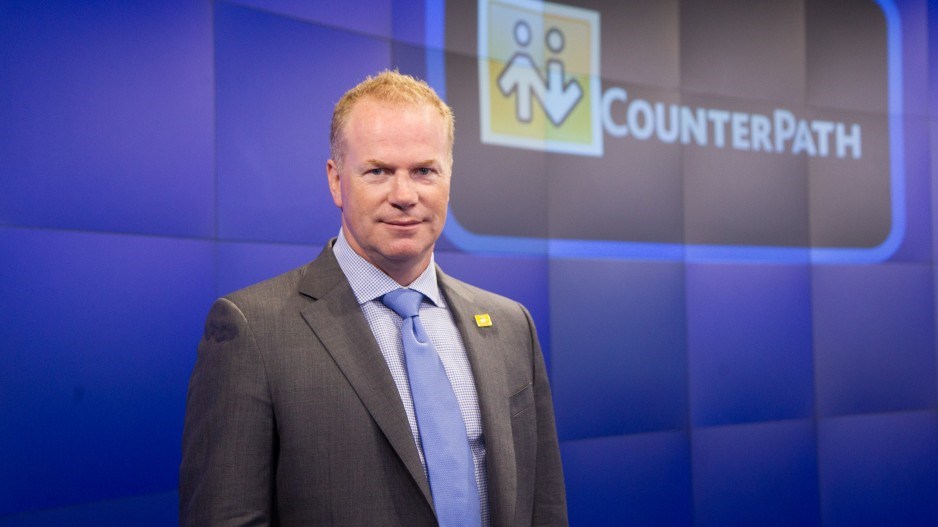When you're a small tech company going head to head with Google (Nasdaq:Goog) and Microsoft (Nasdaq:MSFT), you need an edge.
When it comes to softphones (Internet phone calls using your computer, tablet or smartphone – think Microsoft's Skype or Google Voice), CounterPath is still a relatively small player, despite having 10 million downloads to its credit.
According to a recent Analysys Mason survey, Skype dominates the voice over internet protocol (VoIP) market with a 79% share.
But the Vancouver company was recently granted a North American patent on an intelligent routing system that promises to give it a competitive advantage in the bourgeoning mobile VoIP market.
"This is a big deal," said Counterpath CEO Donovan Jones. "This is a portfolio of patents that we're very excited about, and they're all around this concept of one number."
The one-number model allows a mobile phone number to be used for voice calls, video conferencing or texting on smartphones, tablets, laptops or desktops.
Rogers Communications (TSX:RCI) uses CounterPath's VoIP technology for its Rogers One service, which already has tens of thousands of users.
CounterPath's new intelligent routing system allows for seamless switching between voice, data and Wi-Fi – something businesses with employees who travel a lot will like because it will save them a bundle in long distance and roaming charges.
"Now you have the ability to not only use an application on any device to make phone calls and do video and do messaging, but now you can route those calls to whichever network makes most sense," Jones said.
CounterPath's newly patented technology can track a phone's location and route calls to the most efficient channel, using CounterPath's softphone application – Bria.
A Bria softphone user who flies to San Francisco, for example, would not have to worry about being hit with roaming or long distance charges because the phone would automatically switch to Wi-Fi – when it's available – or to his or her mobile data channel, if it's not.
Mobile phone subscribers today typically have both voice and data, but roaming charges on voice calls are usually much higher than on data, which is used for sending text and browsing, but which can also transmit voice signals.
Jones believes the switching technology is going to give his company an edge in the growing mobile VoIP market, especially as the one-number approach gains traction.
According to an August 2012 Analysys Mason report, 20% of smartphone users already use VoIP. IBISWorld reports that the market for VoIP has increased 16.7% annually for the last five years, generating $15 billion in revenue each year.
Sam Samy, COO of George Mobile, a Vancouver startup that developed a Skype-type VoIP app, said the market for mobile VoIP is huge. He points to Viber, which makes a peer-to-peer VoIP app that allows users to send text and make calls for free to fellow Viber users.
"In two years, they have over 100 million subscribers," Samy said. "They just raised $34 million in August of last year."
Unlike Skype or George Mobile, CounterPath is not a VoIP operator. It sells its VoIP products to others, like BT Group PLC (British Telecom), which then uses the technology under its BT Business Broadband Voice brand. •




